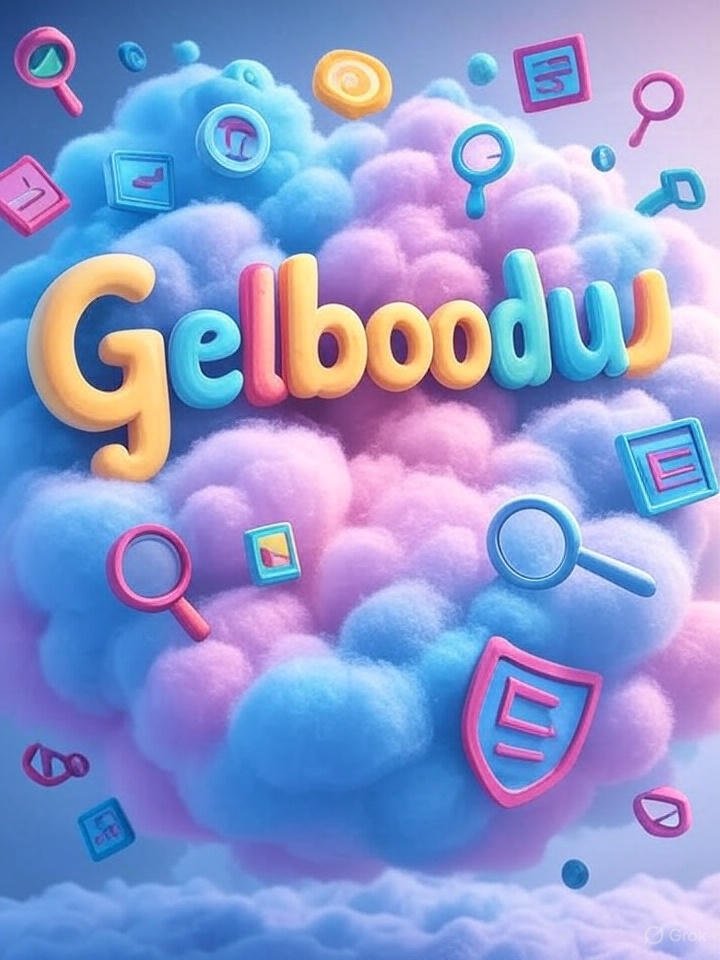The internet is full of words. Some, like “cat” or “book,” mean something. Others, like “gelboodu,” do not. This strange word puzzles people. It’s not real, but it shows up online. Why? I’m Ramona P. Woodmansee. I study online safety to help people understand odd things like this. In this article, I’ll explain what this fake keyword is. You’ll learn why it exists and how to stay safe. My words are simple, like a story for young kids. Let’s explore the truth about this term.
What Does “Gelboodu” Mean?
“Gelboodu” is not a real word. You can’t find it in English or any other language. It’s not a name, a place, or a thing. It’s just a bunch of letters put together. I checked dictionaries and websites. There’s no meaning for “gelboodu.” It’s a fake word, also called a nonsensical keyword. That means it’s made up for a reason, but it doesn’t mean anything to people.
Some websites say it’s an anime or manga site. That’s wrong. My research found no proof of this. The term is just a random word used for technical reasons online. Knowing this helps you avoid mistakes when you see it.
Why Do People Make Fake Words Like “Gelboodu”?
Fake words like “gelboodu” are not accidents. People make them for special jobs on the internet. I’ve studied online tricks for years. These words have clear purposes. They help computers or websites do things without using real words. Let me explain why “gelboodu” might exist.
Another reason is hiding. Some websites use fake terms to avoid spam filters. These filters catch bad words, so a nonsense term can slip through. It’s not meant to trick you, just to help the website work. Fake words can also be placeholders. When someone builds a site, they might use a random term until they add real words. It’s like writing “to do” in a notebook.
Is “Gelboodu” a Trick?

No, “gelboodu” is not a trick. A trick is when someone lies to make you do something bad, like give them money. “Gelboodu” doesn’t do that. It’s just a random word with no meaning. It can’t fool you because it doesn’t pretend to be anything real. I’ve seen real tricks online, like fake stores or bad apps. “Gelboodu” is different. It’s harmless on its own.
But you should still be careful. If it’s on a strange website, that site might not be safe. A bad site could use fake words to hide what it does. My job is to help you spot these things. Always check where the word appears before you click anything.x
How Is It Different from Real Words?
Real words have meaning. If you search “best book,” you find book reviews. People want those results. They’re helpful. Fake words are different. Nobody searches for them on purpose. They don’t lead to useful things. They’re used for computer tasks, not for people.
For example, a real word like “game” leads to fun ideas. This fake term leads to nothing useful. It’s not trying to help. It’s just there for technical reasons. In my work, I’ve seen how real words bring people to websites. Fake ones stay in the background.
Does It Help Websites Rank?
Some people think fake words help websites show up on Google. This is called SEO, or search engine optimization. SEO helps websites get found. Real words like “buy toys” are good for SEO. People search for them, so websites use them to get clicks.
This fake term doesn’t help SEO. Nobody searches for it, so it doesn’t bring visitors. Some bad websites use fake words to try to cheat Google. But Google is smart. It knows nonsense words aren’t important. It won’t rank those sites high. My experience shows fake words don’t help websites. They’re just tools for other tasks.
Where Might You Find It?
This word might be on a test website. Someone learning to code could use it as practice. These sites aren’t meant for you to visit. It could also be on a spam site. These sites try to get clicks with ads or fake words. They’re not always safe.
Sometimes, it’s in a blog or forum post. Someone might have typed it as a joke. I’ve seen this with other fake words. They show up in odd places online. Once, I found a nonsense word in a comment. It was just for fun. This term might be like that.
Could It Be Dangerous?
By itself, this word is not dangerous. It’s just letters. It can’t hurt you. But the website it’s on matters. A bad site might use fake words to hide tricks. For example, a phishing site could use nonsense terms to seem safe. It might try to steal your information.
I’ve studied online scams for years. Some use fake words to hide their plans. But this term alone isn’t a scam. It’s just a tool. If you see it on a weird site, check the site carefully. Look for signs of trust, like a clear owner or contact details.
How to Spot Fake Words
Fake words have signs. They don’t make sense. They’re not in books or dictionaries. They don’t connect to real things like stores or places. If you search for them, you find little information. Real words lead to clear answers. Fake ones don’t.
Another sign is where they appear. Fake words are often on low-quality sites. These sites might have lots of ads or no clear owner. My advice is to check the website. Tools like ScamAdviser can show if a site is safe. If it’s not, stay away. This keeps you safe.
How Search Engines Handle Fake Words
Google focuses on useful words. It cares about what people search for, like “how to draw.” Fake words aren’t popular. Google knows this and gives them low priority. If a site uses too many fake words, Google might think it’s spam. That site won’t show up high in searches.
Sometimes, a fake word gets saved by mistake. It might be in hidden code or a random post. Google doesn’t ignore it, but it doesn’t care much either. My work shows fake words don’t help websites rank. They’re just there for other reasons.
What to Do If You See It
If you see this word online, don’t worry. It’s not a problem. Just check where it is. If it’s on a normal website, it’s probably a test word. If it’s on a strange site, be careful. Don’t click links or share details. My research says to always check the source. A good website shows who runs it.
You can search for “gelboodu scam” to see what others say. If nothing comes up, it’s likely safe. You can also report bad sites to Google. This helps keep the internet safe for everyone.
The Hidden World of Fake Words
The internet has a secret side. Fake words are part of it. They’re like tools that help websites work. Most people don’t see them. They’re not meant to be noticed. They do jobs like testing or hiding without bothering anyone.
I’ve learned about this hidden world through my work. Fake words are everywhere. They’re not bad, just technical. This term is one of many. It’s not special, but it’s interesting. It shows how the internet works behind the scenes.
Staying Safe Online
Fake words are safe, but the internet can be tricky. Bad websites might use nonsense words to hide things. To stay safe, check websites before you click. Use trusted sources like Google Search Central for tips. Don’t share personal details on strange sites.
My job is to help you stay safe. I write about online tricks to teach you what to look for. If you see a weird word, think about where it is. A good site is clear about who runs it. A bad site might hide things.
Why Trust Is Important
Trust matters online. You want to know a website is honest. Fake words don’t build trust. They’re just tools. But they can make you wonder about a site. If a site uses lots of nonsense words, it might not be clear about what it does.
My articles help you find safe sites. I check facts and use simple words. I’ve written about fake names and apps. I use my knowledge to help you make smart choices. Good sites have real information and real people behind them.
Conclusion
“Gelboodu” is a fake keyword with no misleading intent. It’s a made-up word used for things like testing or avoiding filters. It’s not a trick or a scam. It’s just part of how the internet works. I’m Ramona P. Woodmansee. I study online safety to help you understand things like this. If you see “gelboodu,” don’t worry. Just check the website it’s on. Stay safe and keep learning about the internet.
Disclaimer: This article about “gelboodu” is for learning only. Ramona P. Woodmansee shares research to explain it clearly. Always check websites yourself before clicking. This is not advice. Stay safe online and use trusted sources.
Explore More
- Is ‘Fetl8fe’ a Scam, Spam Keyword, or Just Gibberish? Here’s the Truth
- JoinCRS com | Official CRS Recruitment & Membership Portal
